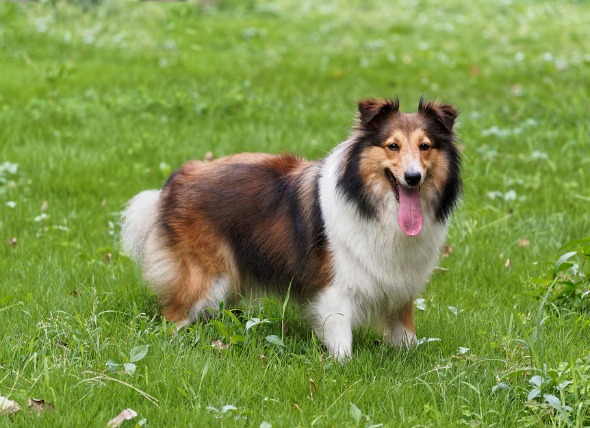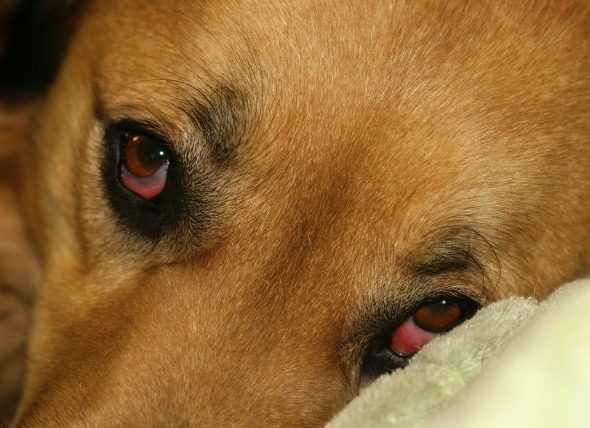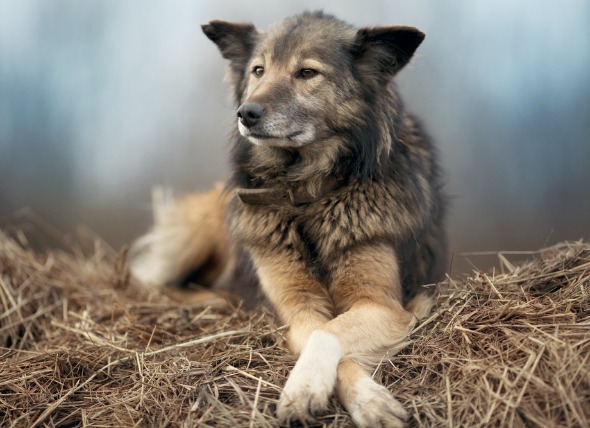Does your dog have diarrhoea or a runny nose; do you need to know if it is just a cold or something more serious? This article takes a look at the illnesses seen in dogs that we vaccinate against and exactly why we do so.
Any owner of children or pets will know how even the slightest illness can worry you that it may be a more serious ailments. In the UK the majority of dogs are vaccinated yearly for a number of diseases; however there is no legal obligation for owners to do so and unlike Rabies these diseases have not been eradicated from the UK, so it is always worth knowing the symptoms (and implications) for these diseases.
Parvovirus: A severe dysentery-type disease that attacks the immune system and cells lining the intestines, causing high temperature, serious vomiting, lethargy and bloody foul-smelling diarrhoea. Infection is spread through contact with infected faeces. Treatment is aggressive, must be given within 24 hours and most estimates give only a 50% chance of survival.
Canine Distemper (Hardpad): This is one of the oldest known dog diseases transmitted through airborne water droplets. Symptoms start with a high temperature, cough and runny nose and sore eyes and progresses with vomiting and diarrhoea. This virus attacks the gut, lungs and nervous system and is often fatal whilst dogs that survive often develop permanent disabilities, epiliepsy, thickening of the foot pads and yellow damaged teeth.
Infectious Canine Hepatitis: This virus rapidly attacks the liver, lungs, kidneys and eyes. The disease is transmitted by direct contact with infected urine, faeces or saliva, and dogs remain infectious for up to six months. The main symptoms occur within the first 24-36 hours and include refusal to drink water or eat dog food, pale gums, high temperature, reddening of the eyes, stomach pain, vomiting and diarrhoea. Many cases are fatal but some dogs can recover.
Canine Parainfluenza Virus: This virus is an important component of 'kennel cough’ , a highly infectious upper respiratory tract infection of dogs which causes a dry hacking cough.
Leptospirosis: Also known as Weil’s disease, this disease is caused by bacteria from the family Leptospira found in the urine of infected rats and dogs. Progression of the disease is extremely rapid as the disease attacks the liver and kidneys of the dog. Symptoms include depression, severe thirst, high temperature, increased urination, lethargy (refusal to get off dog bed), jaundice and bloody diarrhoea, in severe cases death occurs within hours. Whilst antibiotics can help to treat Leptospirosis, cases are often fatal or cause lifelong damage to the kidneys and liver.
It is also possible to get vaccinations against Kennel cough and coronavirus. Whilst kennel cough is not fatal it can cause a prolonged hacking cough and sneezes and is extremely infections whilst coronavirus is also highly contagious and leads to vomiting and diarrhoea which in severe cases can be fatal.
It is vital that if you suspect that your dog has any of these diseases that you seek veterinary advice immediately. Treatment often needs to be within a few hours so there is no room for delay in diagnosis.

 Spinal Cord Disorder Caused by Blocked Blood Vessel in Dogs
Fibrocartilaginous Embolic Myelopathy in Dogs
Fib
Spinal Cord Disorder Caused by Blocked Blood Vessel in Dogs
Fibrocartilaginous Embolic Myelopathy in Dogs
Fib
 Skin Rash Due to Contact with Irritants in Dogs
Contact Dermatitis in Dogs
Contact dermatitis may
Skin Rash Due to Contact with Irritants in Dogs
Contact Dermatitis in Dogs
Contact dermatitis may
 Droopy Eye in Dogs
Horner’s Syndrome in Dogs
Horner’s sy
Droopy Eye in Dogs
Horner’s Syndrome in Dogs
Horner’s sy
 Fungal Infection (Aspergillosis) in Dogs
Aspergillosis in Dogs
Aspergillosis is an opportu
Fungal Infection (Aspergillosis) in Dogs
Aspergillosis in Dogs
Aspergillosis is an opportu
 Enlarged Liver in Dogs
Hepatomegaly in Dogs
The term hepatomegaly is use
Enlarged Liver in Dogs
Hepatomegaly in Dogs
The term hepatomegaly is use